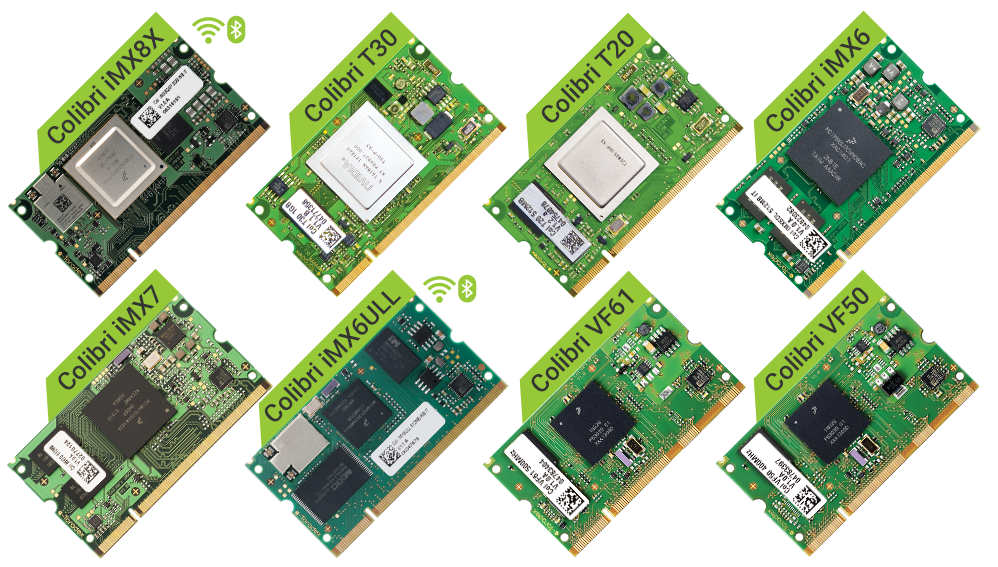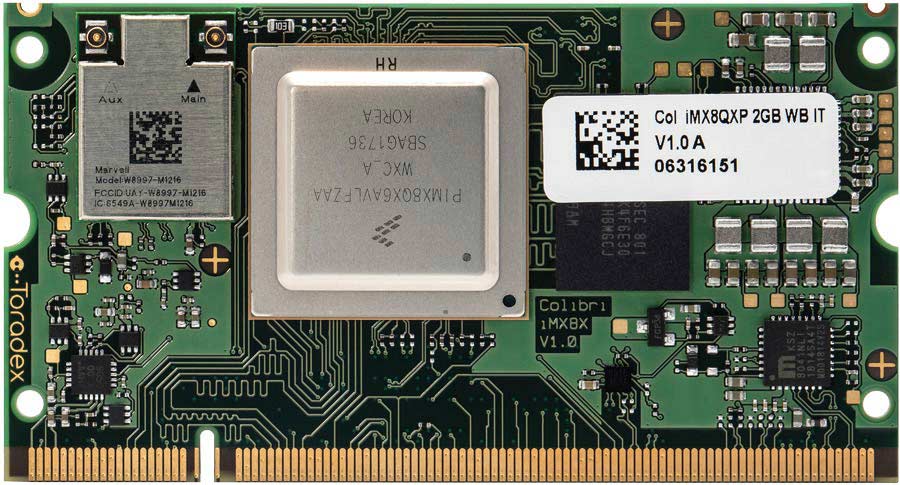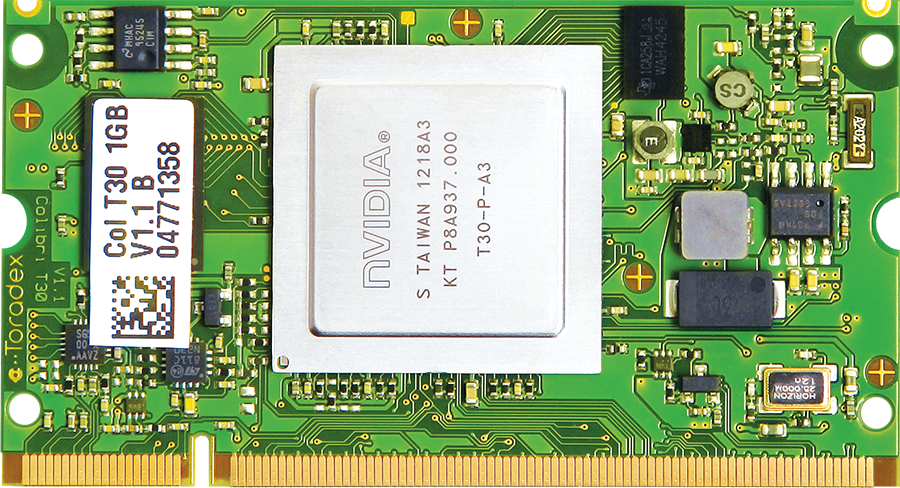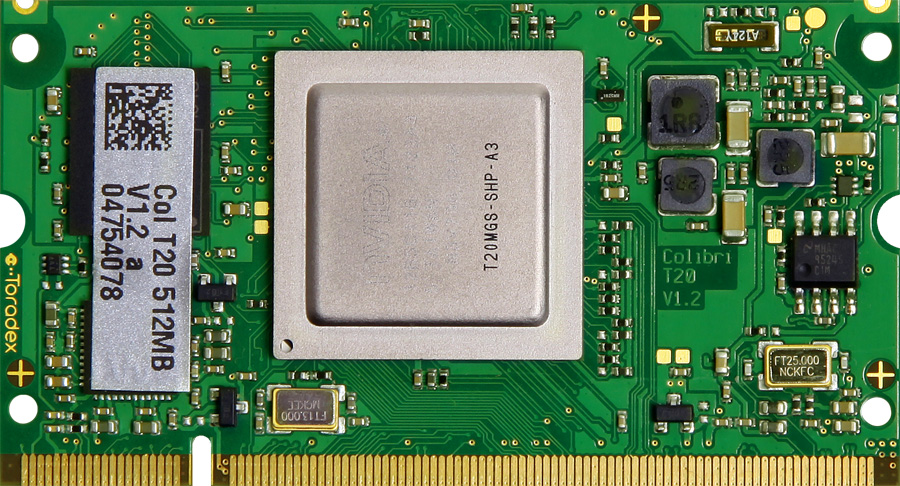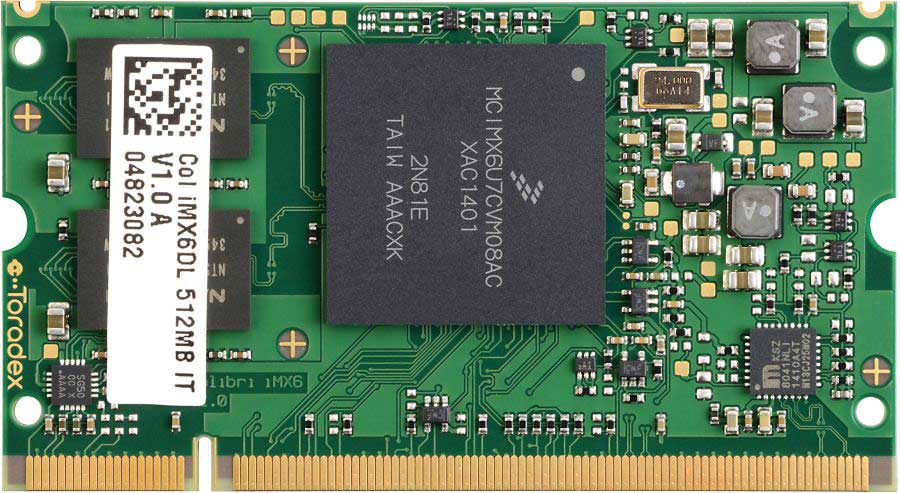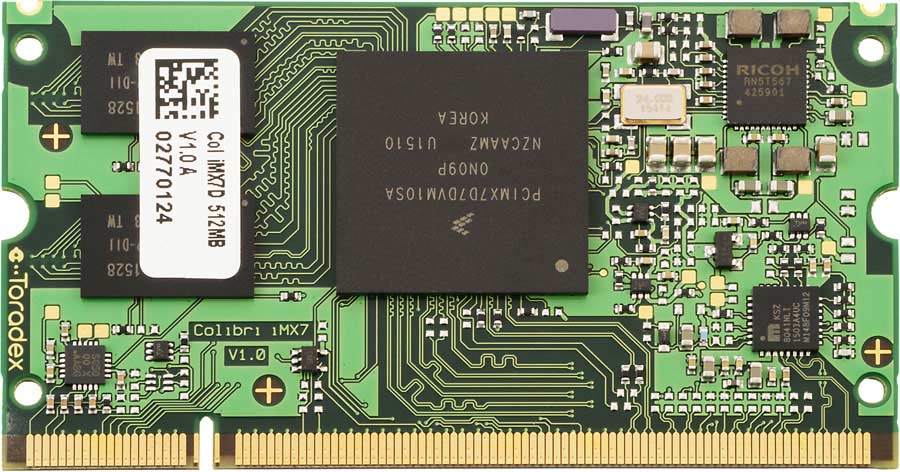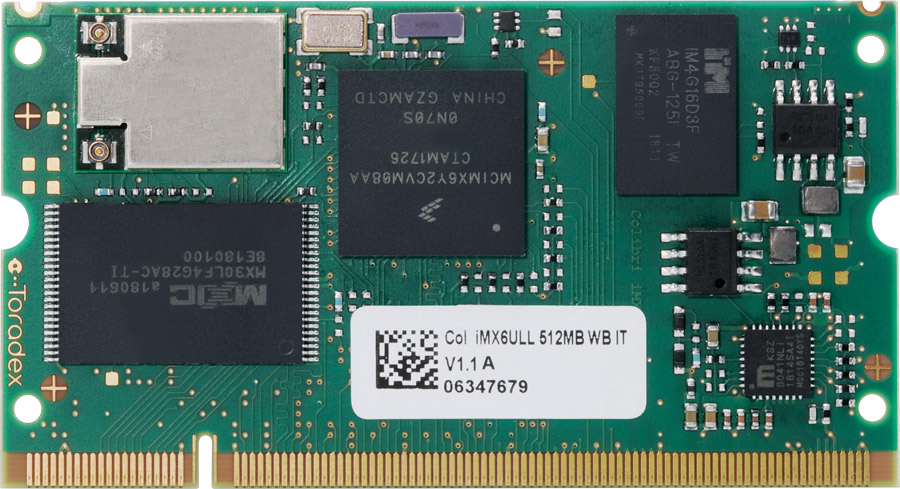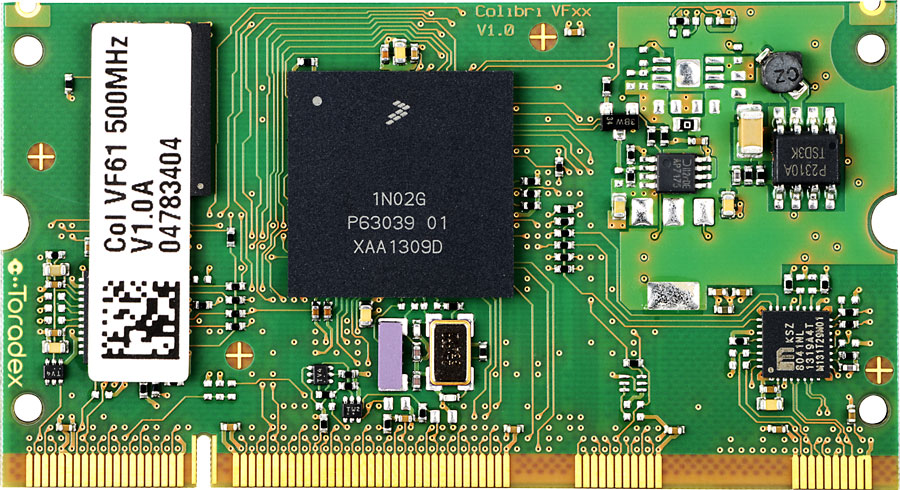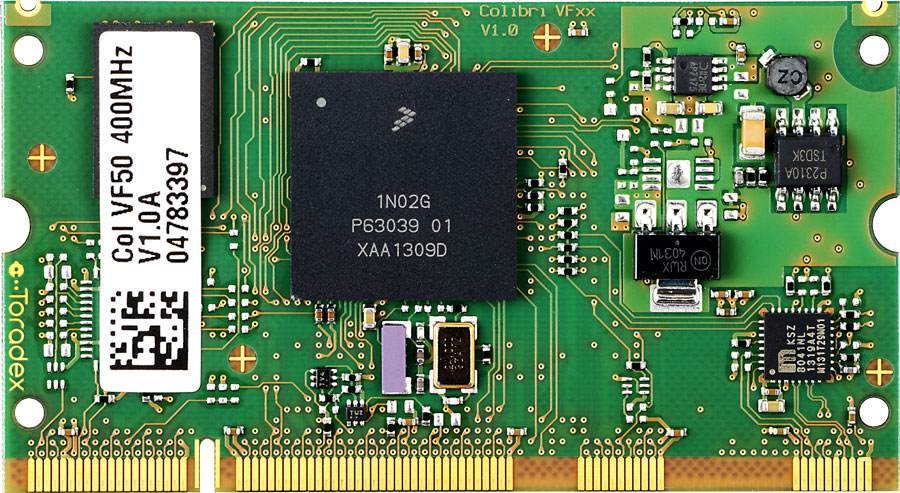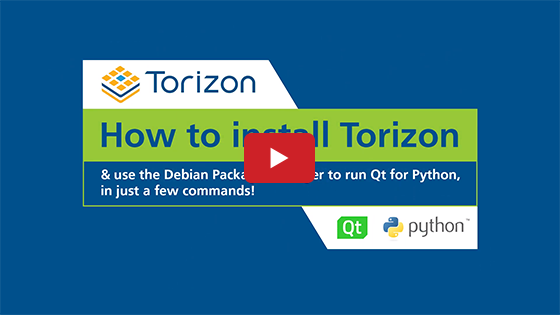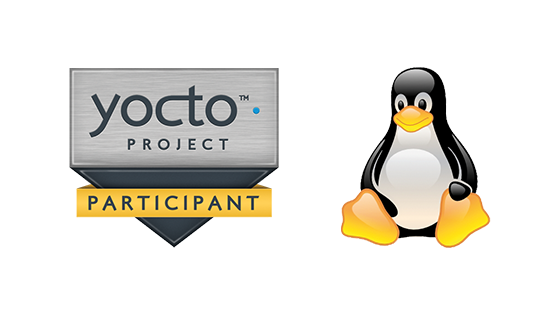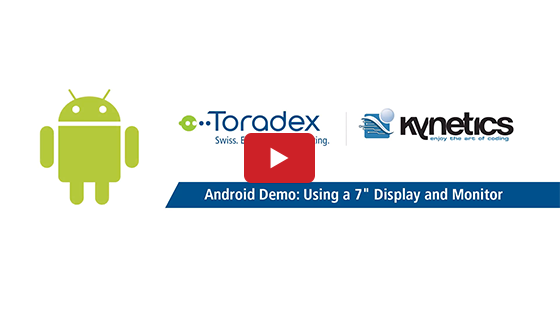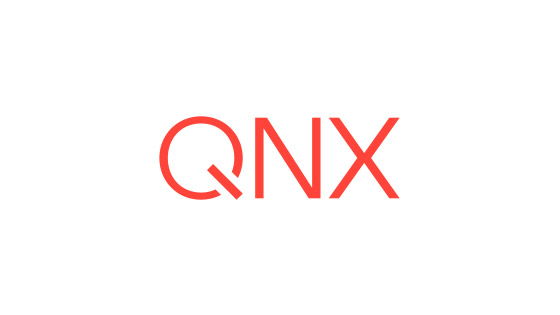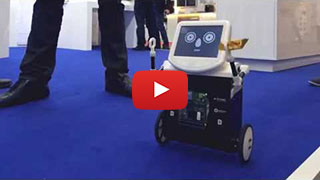Colibri Arm-Familie
Die Colibri Arm® Familie besteht aus SODIMM-grossen System-on-Modules (SoM) / Computer-on-Modules (CoM). Die Familie umfasst miniaturisierte Module auf Basis von NXP® i.MX 8X, i.MX 6ULL, i.MX 7, i.MX 6, Vybrid und NVIDIA® Tegra SoCs. Alle diese Module sind pin-kompatibel, was die Skalierbarkeit der auf ihnen entwickelten Anwendungen sicherstellt. Die Colibri-Familie liefert kosten-leistungsoptimierte Designs. Für die einfache Produktentwicklung auf der Colibri-Arm-Modulfamilie ist auch ein umfangreiches Angebot an Colibri kompatiblen Trägerplatinen und Zubehör, wie z. B. Kameras und Displays, erhältlich.
Highlights
Colibri Computer-on-Modules-Familie
-
A35
-
A35
-
A35
-
A35
-
M4F
-
3D GPU OpenCL
-
2GB RAM
-
8GB FLASH
-
A9
-
A9
-
A9
-
A9
-
3D GPU
-
1GB RAM
-
4GB FLASH
-
A9
-
A9
-
3D GPU
-
512MB RAM
-
1GB FLASH
-
A9
-
A9
-
3D GPU
-
512MB RAM
-
4GB FLASH
-
A7
-
A7
-
M4F
-
1GB RAM
-
4GB FLASH
-
A7
-
1GB RAM
-
4GB FLASH
-
A5
-
M4F
-
256MB RAM
-
512MB FLASH
-
A5
-
128MB RAM
-
128MB FLASH
Software
Torizon ist eine sofort einsatzbereite Linux-basierte Software-Plattform, die sich ideal für den Einsatz in Bereichen wie Industrie und Medizin eignet, in denen Zuverlässigkeit entscheidend ist. Das entwicklerfreundliche Ökosystem, vereinfacht den Prozess von Entwicklung und Wartung von Embedded-Software wesentlich.
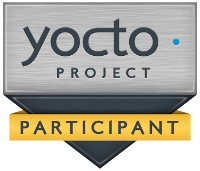
Toradex entwickelt und pflegt ein Yocto Project-kompatibles, produktionsfähiges Embedded Linux BSP im Haus.
Windows Embedded Compact, früher bekannt als Windows CE (WinCE), ist ein Echtzeit-Betriebssystem mit geringem Platzbedarf. Dieses Betriebssystem ist ideal für den Aufbau von Embedded-Produkten, die auf eine Vielzahl von industriellen Anwendungen abzielen.
Android ist ein Betriebssystem, das auf dem Linux-Kernel basiert. Es bietet ein kostengünstiges, flexibles und anpassbares Betriebssystem für die Entwicklung von High-Tech-Geräten.
QNX ist ein Mikrokernel-basiertes Echtzeit-Betriebssystem, das in erster Linie auf eingebettete Systeme abzielt, die ein hohes Mass an Safety und Security erfordern.
Toradex bietet direkte Unterstützung für FreeRTOS auf Colibri iMX8X. FreeRTOS ist ein Echtzeitbetriebssystem, das auf den Cortex-M4-Kernen parallel zum Hauptbetriebssystem läuft.
Colibri Computer-on-Modules - Vergleichstabelle
The power consumption is subject to variation, depending on the situation. Our estimation of the minimum and maximum power consumption is based on the lowest idle power consumption and the highest power consumption values during maximum load. Refer our developer article for more information.
(1) The Wi-Fi/Bluetooth module featured on the SoM is rated for an operating temperature range of -30°C to +85°C. As this component is not deemed boot-critical, the SoM is still listed as an industrial temperature range product.
Allgemein: Einige Schnittstellen sind auf Pins verfügbar, die innerhalb der Colibri Computer-on-Module-Familie nicht vollständig kompatibel sind. Es gibt Einschränkungen bei der gleichzeitigen Verwendung verschiedener Schnittstellen, bitte prüfen Sie das jeweilige Datenblatt für genaue Details.
Colibri Carrier Boards
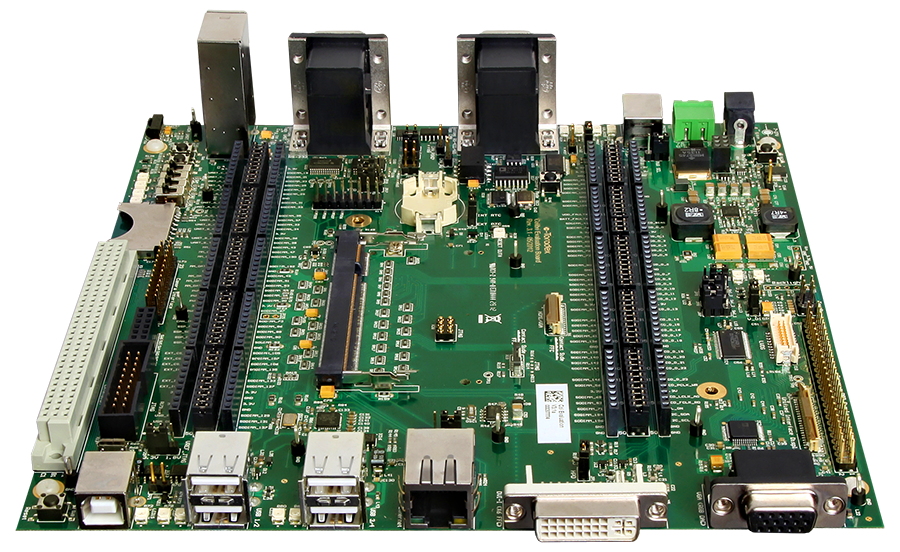
The Colibri Evaluation Board is designed to be a flexible development environment to explore and evaluate the functionality and performance of the entire Colibri product family and includes support for the additional/enhanced functionality on the Colibri T20 and Colibri T30, the Toradex modules which feature the NVIDIA® Tegra™ 2 and Tegra 3 processors.
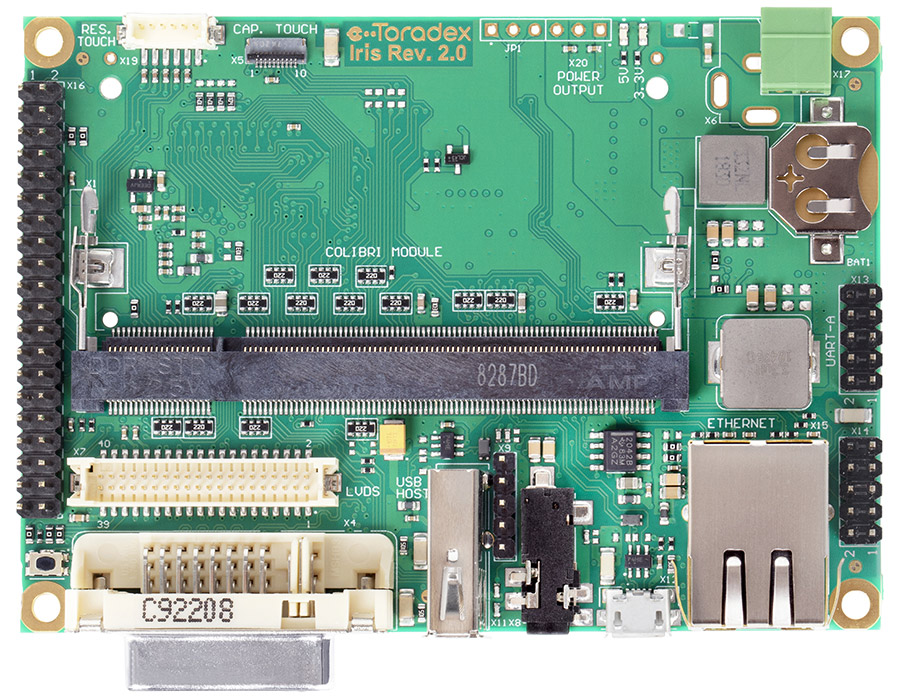
Iris is a compact carrier board for the Colibri family of computer-on-modules. Iris supports all modules in the Colibri product family, and includes support for the additional/enhanced functionality on the Colibri T20 and T30 products.
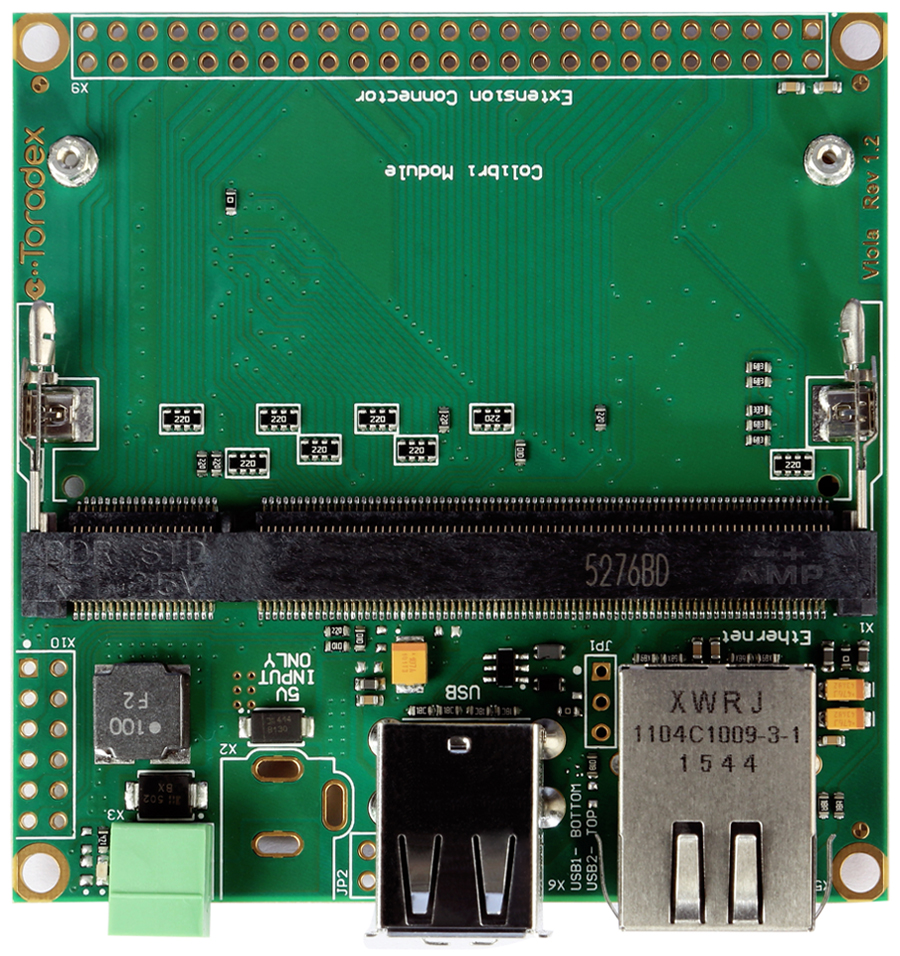
The Viola Carrier Board is targeted at cost sensitive applications which require a small form factor. Measuring just 74 mm x 74 mm, Viola is one of the smallest, lowest cost Single Board Computer (SBC) equivalent solutions on the market. Standard interfaces provided by the Colibri modules are supported by the Viola carrier board using a combination of real-world connectors, card slots and 2.54 mm pitch pin headers. Communication interfaces include USB 2.0 host and 100 Mbit Fast Ethernet. Support for common industrial interfaces including I2C, SPI, UART and GPIO makes the Viola carrier board perfectly suited for industrial and embedded applications.
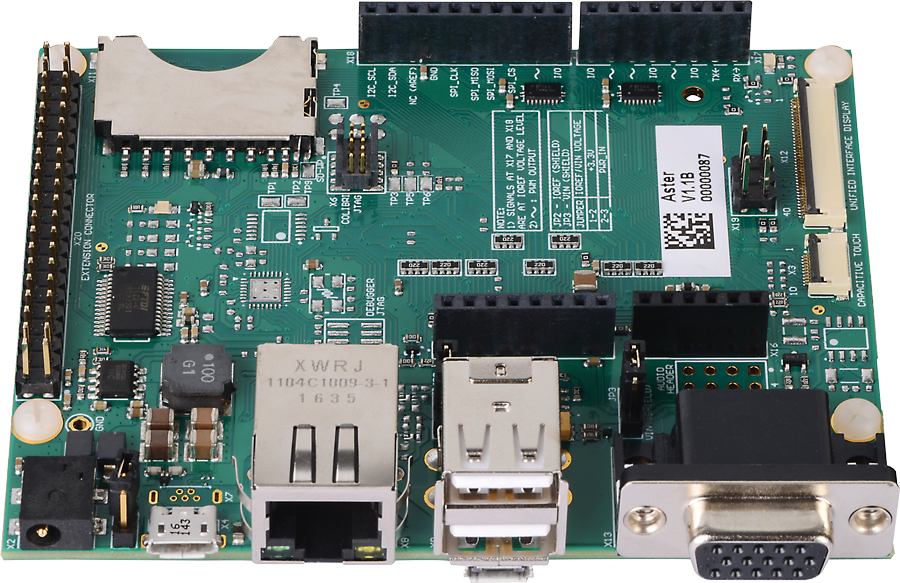
Aster is a carrier board for the Colibri Family of Computer on Modules. Aster has been designed to allow fast prototyping and evaluation of solutions using industry proven Colibri SoM pin compatible product line.
Andere Computer-on-Module-Familien
Die Computer-on-Modules (CoMs) der Apalis-Arm-Familie bieten modernste Rechenleistung mit hervorragender Grafik bei optimalem Stromverbrauch. Darüber hinaus werden Hochgeschwindigkeitsschnittstellen und umfangreiche Multimediaformate unterstützt. Einschliesslich kostenloser Betriebssystemunterstützung für Embedded Linux und Windows Embdded Compact.
Die Computer-on-Modules (CoMs) der Verdin-Arm-Familie vereinen moderne High-Speed-Schnittstellen, ein intuitives Pinout und einen kompakten Formfaktor zu einer skalierbaren, Pin-kompatiblen, kosten- und energieoptimierten Lösung. Inklusive kostenloser Betriebssystemunterstützung für Embedded Linux.
